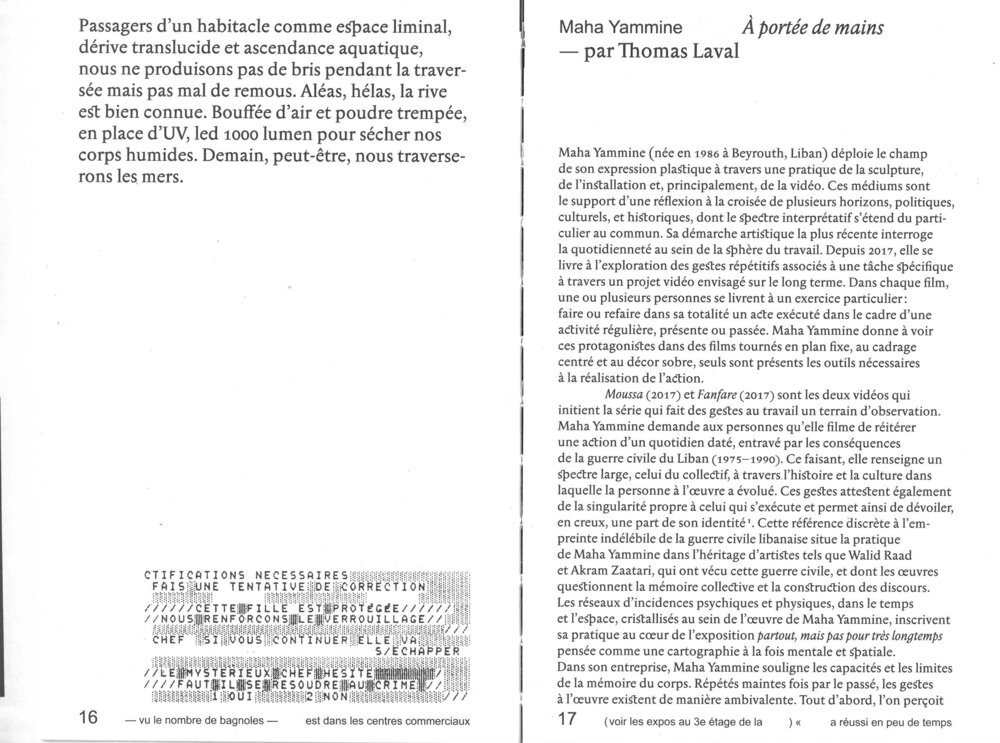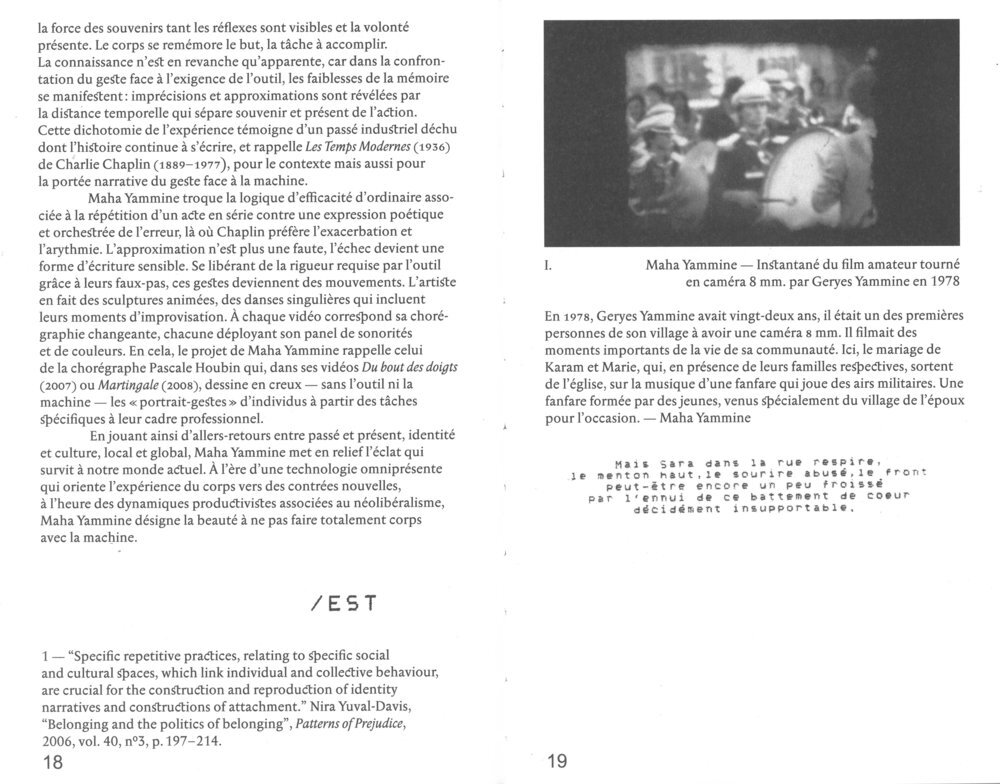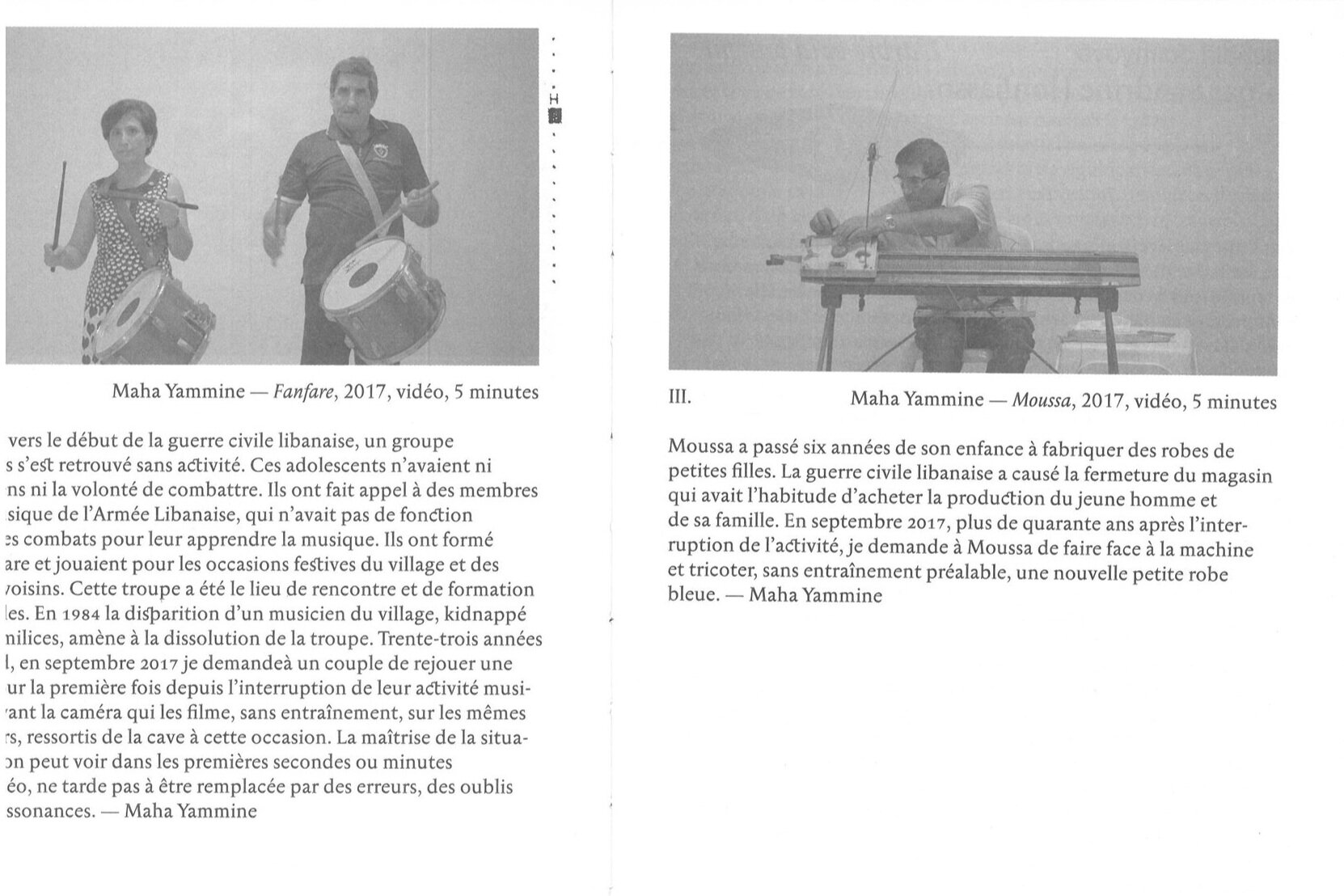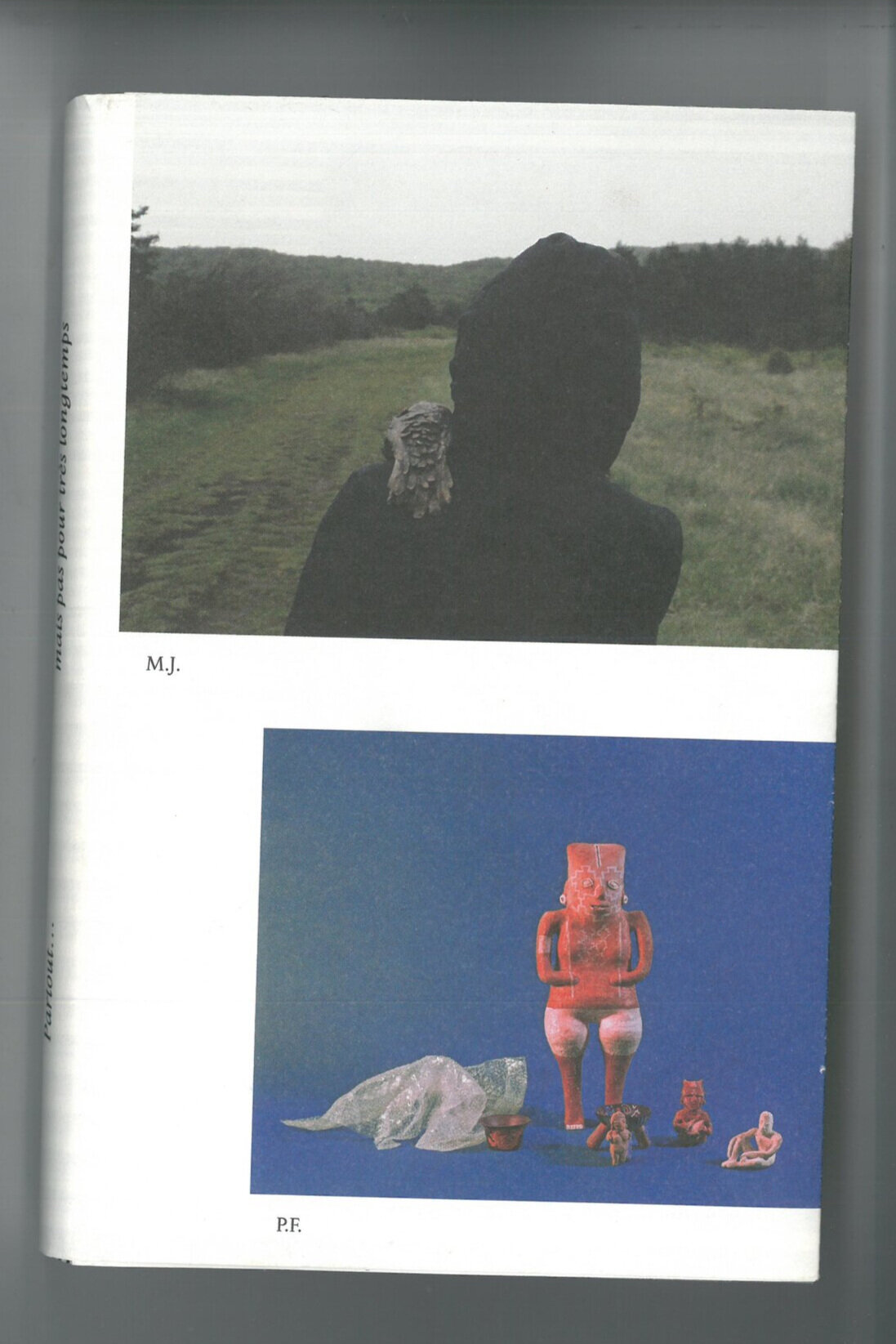Thomas Laval, curator, Partout, mais pas pour très longtemps (original text in French)
Maha Yammine (born in 1986 in Beirut, Lebanon) deploys the field of her plastic expression through a practice of sculpture, installation, and mainly, video. These mediums are the support of a reflection at the crossroads of several horizons, political, cultural, and historical, whose spectrum of interpretation extends from the particular to the common. Her most recent artistic approach questions everyday life in the sphere of work. Since 2017, she has been exploring the repetitive gestures associated with a particular task through a long-term video project. In each film, one or more people engage in a particular exercise: make or redo in its entirety an act performed in the context of a regular activity, present or past. Maha Yammine gives to see these protagonists in films turned in fixed shot, with the centered framing and the sober decoration, only the tools necessary for the realization of the action are present.
Moussa (2017) and Fanfare (2017), are the first two videos that initiate the series that makes gestures at work a field of observation. In these two films, Maha Yammine asks those she films to reiterate an action of a past daily life, hampered by the consequences of the Lebanese civil war (1975-1990). In doing so, it informs a broad spectrum, that of the collective, through the history and culture in which the working individual has evolved. This discreet reference to the indelible imprint of the Lebanese civil war places the practice of Maha Yammine in the heritage of artists such as Walid Raad and Akram Zaatari, who experienced this civil war, whose works question the collective memory and the construction of speeches. These gestures also attest to the peculiarity of the person who executes and allows to reveal a part of his identity (1). The networks of psychic and physical incidences, in time and space, crystallized within the work of Maha Yammine, put her practice at the heart of the exhibition Partout, mais pas pour très longtemps thought of as a cartography of both the mental and the spatial.
In her activity, Maha Yammine emphasizes the capabilities and limits of the body’s memory. Continually repeated in the past, gestures at work exist in an ambivalent way. First of all, we perceive the strength of memories, the reflexes and the will are visible. The body remembers the goal, the task to be accomplished. On the other hand, knowledge is only apparent, because in the confrontation of the gesture with the requirement of the tool, the weaknesses of the memory is manifested: inaccuracies and approximations are revealed by the temporal distance that separates the memory and the present time of the action. This dichotomy of experience testifies to a fallen industrial past whose history continues to be written, and recalls Modern Times (1936) by Charlie Chaplin (1889-1977), for the context but also for the narrative scope of gesture against the machine.
Maha Yammine trades the logic of efficiency usually associated with the repetition, against a poetic and orchestrated expression of error, where Chaplin prefers exacerbation and arrhythmia. The approximation is no longer a fault, failure becomes a form of sensitive writing. Releasing the rigor required by the tool through their missteps, these gestures become movements. The artist makes animated sculptures, singular dances that include their moments of improvisation. Each video corresponds to its changing choreography, each displaying its panel of sounds and colors.
By playing back and forth between past and present, identity and culture, local and global, Maha Yammine highlights the glow that remains in our world today. In the era of a pervasive technology that directs the body’s experience towards new lands, in the era of productivist dynamics associated with neoliberalism, Maha Yammine refers to the beauty of not totally fitting the machine.
(1) « Specific repetitive practices, relating to specific social and cultural spaces, which link individual and collective behaviour, are crucial for the construction and reproduction of identity narratives and constructions of attachment. » YUVAL-DAVIS, Nira., Belonging and the politics of belonging., Patterns of Prejudice, 2006, vol. 40, n°3, p. 197-214.



